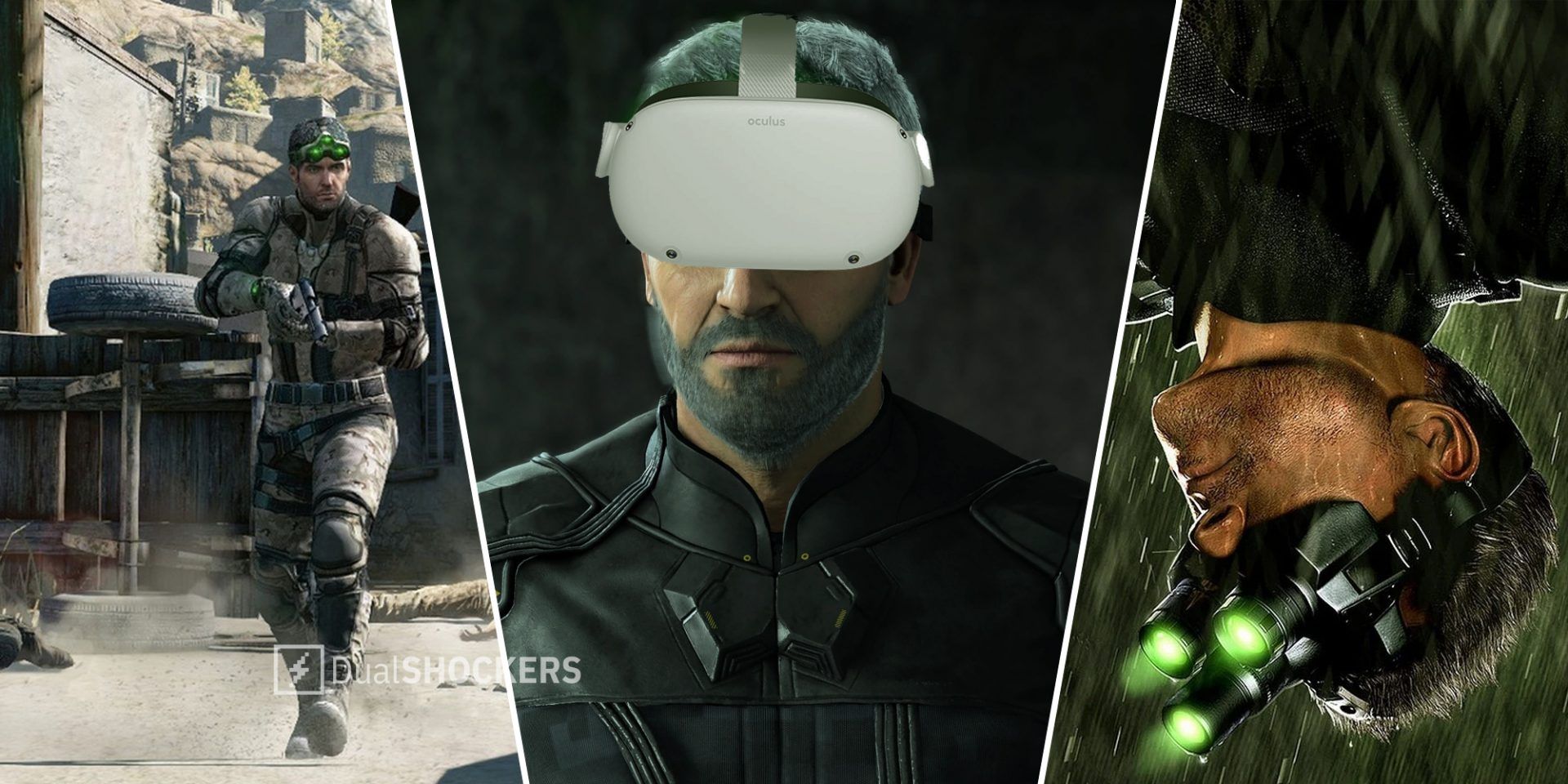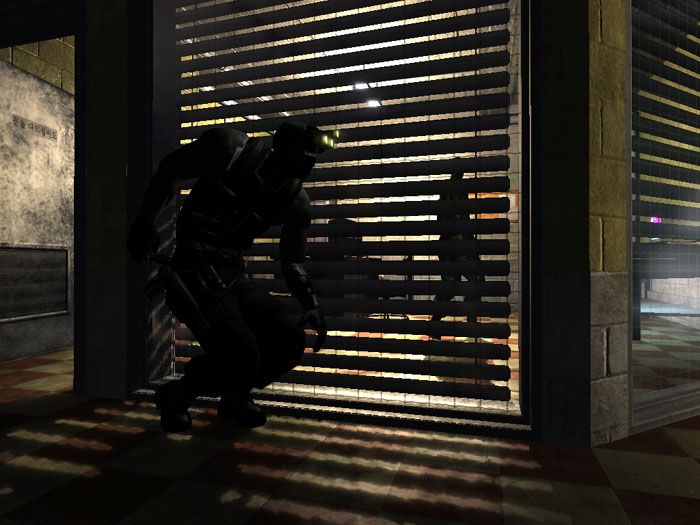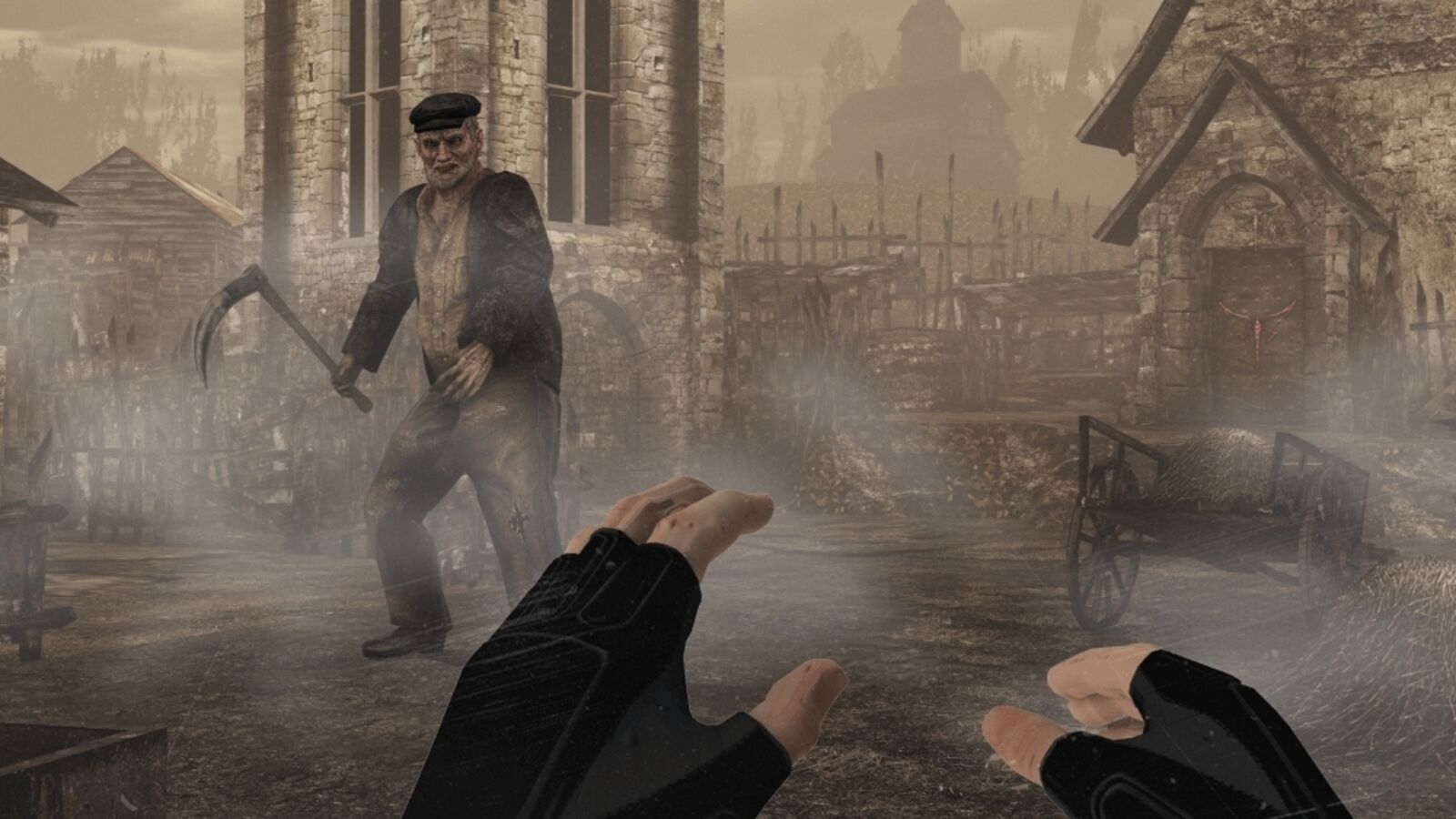Just the other day, Ubisoft announced that it had cancelled several in-development projects. One of these was a battle royale twist on Ghost Recon, called Ghost Recon Frontline, the loss of which was surely about as harrowing for everyone as a 5p coin slipping out of your pocket and disappearing into the storm drain. The battle royale market is perfectly brimming right now, and turning a beloved series like Ghost Recon into a free-to-play game seemed like another bad move in a series of bad moves by Ubisoft. If this spells the death of Ghost Recon, then at least it can die with some dignity rather than having its corpse dragged through the F2P muck.
The more sobering news was that Ubisoft also cancelled Splinter Cell VR. The game, which would've marked a long-overdue return of Sam Fisher and one of the greatest stealth series of all time, was to be an Oculus/Meta exclusive. It was announced the best part of two years ago, along with an Assassin's Creed VR game, but now it appears that Fisher's return will have to wait until the Splinter Cell remake, expected to come out at some point next year.
Splinter Cell and VR seemed as perfect a fit as Sam's Mark V Tactical Operations Suit on his buttocks. Fisher's famous multi-vision goggles, which can switch between multiple viewing modes like night vision, thermal, and so on, were their own kind of headset, and integrating that with VR could've really pulled us into the headspace of Fisher. Lifting your controller to the temple of your headset then pressing a button to switch viewing modes would've been extremely satisfying, while the predominantly dark environments of the game could've made it a relatively comfortable playing experience.
Then there's the fact that the inevitable sweaty eyebags you get some 20 minutes into a VR session would suddenly be a source of immersion rather than an inconvenience, as you can bet that Sam Fisher probably had a fair few cases of swamp-eyes in his time (...unless his goggles have some kind of ventilation system?)
But I digress. Splinter Cell's self-evident potential for VR and sweaty eyebags aren't the only reasons we should mourn its cancellation. As our own Eddie pointed out a short while back, VR has been lacking a true big-name blockbuster game since 2020. With The Walking Dead: Saints and Sinners, and of course Half-Life: Alyx, it seemed like a breakout year for VR, finally bringing to a head years of technical innovation (which included finding ways to prevent people from throwing up all over the floor) to show that VR was as capable of delivering experiences as deep as any 'big console' game.
But things have quietened down since then. There's something to be said for the growing number of retro games being ported into VR - Resident Evil 4, Doom 3, GTA: San Andreas, to name a few - but the publishers of these games should be looking forward as well as back, trying to contribute their own innovations and ideas to the medium rather than just reliving their past glories in the VR format.
VR needs a meaningful presence from those big-name IPs, and it needs the makers of those games to take it seriously. Publishers like Bethesda have been porting the likes of Skyrim, Fallout 4 and DOOM to VR, but all these games offered the most rudimentary form of VR - the lowest common denominator - and hardly took advantage of the incredible tech (or left it to modders to realise these games' potential). Similarly, the VR mode in the latest Hitman - that could've been such a good thing - felt like an afterthought, little more than a perfunctory side-feature to add to an otherwise impressive package of games.
Resident Evil 4 VR: Very fun, but hardly ground-breaking.
At a glance, the likes of Assassin's Creed and Splinter Cell would lend themselves wonderfully to VR, but Ubisoft has hardly come across as a publisher that really knows what to do with the medium. Last year, they launched Far Cry: Dive Into Insanity, a simplistic shooter that was only elevated by the fact that it was designed for Zero Latency VR sites where players got to use prop guns, VR rigs, and walk around large spaces. As a game itself, it was extremely limited.
Ubisoft's best VR effort to date was Star Trek: Bridge Crew, a co-op game that was perfectly enjoyable, but singularly focused and limited in scope (essentially, Spaceteam with a Star Trek license). It came out back in 2017, and since then Ubisoft hasn't shown any willingness to scale up the ambition of its VR offerings, all of which have been decidedly small in scale. Alarmingly, they recently announced that they'll be shutting down the 2019 VR game Space Junkies in September. Given Ubisoft's form in VR, maybe it's for the best that they don't compromise the Splinter Cell name by releasing some half-assed mini-game experience that has nothing on its source material.
There is some hope for VR, and Ubisoft's forays into it. The Assassin's Creed VR game is still in the works, if the leaks from a couple of months ago are anything to go by. According to the leaker, Echiketto, the combat will be inspired by 2019 VR game Asgard's Wrath and the game will be linear, though "the mission areas are fairly big." Another leak, reported at Exputer, suggested that the game has '16 missions, stealth movement, pickpocketing, lock picking, combat, climbing, and even the leap of faith,' which certainly sounds pretty substantial.
Perhaps the commercially reliable Assassin's Creed will be Ubisoft's big 'coming out on VR' party, finally showing that the publisher is ready to take the medium seriously, and give it a much-needed new headline game. And then who knows? Maybe once the Splinter Cell Remake comes out and Sam Fisher's back to being the celebrity he was in the mid-2000s, we'll see a VR iteration resurface and strike from the shadows, delivering an experience that goggle-faced Sam seems so well suited for.



